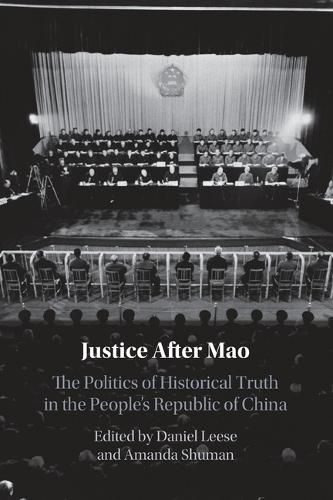Readings Newsletter
Become a Readings Member to make your shopping experience even easier.
Sign in or sign up for free!
You’re not far away from qualifying for FREE standard shipping within Australia
You’ve qualified for FREE standard shipping within Australia
The cart is loading…






How can a dictatorship cope with the legacy of injustices and atrocities committed in its own name? This was one of the pressing questions the Chinese Communist Party leadership faced after the death of Mao Zedong in September 1976 and the end of the Cultural Revolution. This collection presents ground-breaking, original research to address the question of historical justice in the Party's attempt to survive politically despite rampant factionalism and widespread political persecution. The volume traces complex questions of property restitution, fostering reconciliation within local communities, and establishing new standards of truth. Contributions also investigate how various actors remember the period in the present. The post-Mao period provides a lens through which to view strategies of coping with a violent past under state socialism, highlighting how selectively applied approaches now associated with the concept of transitional justice may even serve to strengthen rather than subvert authoritarian rule.
$9.00 standard shipping within Australia
FREE standard shipping within Australia for orders over $100.00
Express & International shipping calculated at checkout
How can a dictatorship cope with the legacy of injustices and atrocities committed in its own name? This was one of the pressing questions the Chinese Communist Party leadership faced after the death of Mao Zedong in September 1976 and the end of the Cultural Revolution. This collection presents ground-breaking, original research to address the question of historical justice in the Party's attempt to survive politically despite rampant factionalism and widespread political persecution. The volume traces complex questions of property restitution, fostering reconciliation within local communities, and establishing new standards of truth. Contributions also investigate how various actors remember the period in the present. The post-Mao period provides a lens through which to view strategies of coping with a violent past under state socialism, highlighting how selectively applied approaches now associated with the concept of transitional justice may even serve to strengthen rather than subvert authoritarian rule.